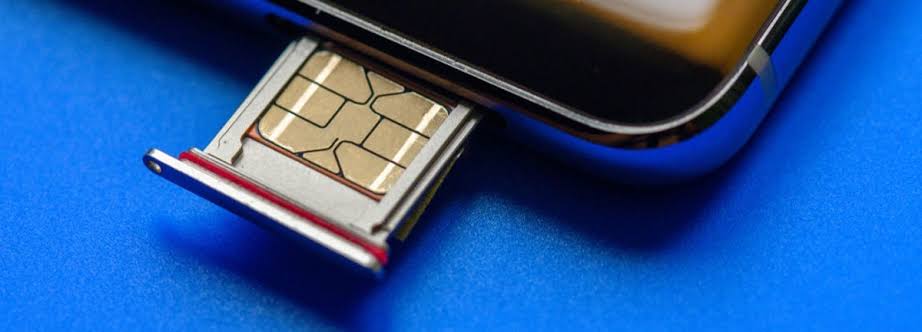The Nigerian Communications Commission (NCC) has unveiled a comprehensive new policy guiding the deactivation and recycling of dormant phone lines across the country. This announcement made is aimed at improving the efficiency of Nigeria’s telecommunications infrastructure while ensuring better security and fair usage of numbering resources.
For millions of Nigerians who own SIM cards they rarely use—or have completely abandoned—it’s time to pay attention. These new guidelines could affect your access to services, digital identity, and more.
In this article, we’ll break down the full details of the new policy, what it means for you as a mobile subscriber, and how to stay compliant.
Why Is the NCC Introducing New Rules?
The NCC says the new policy is part of an ongoing effort to manage Nigeria’s limited telecommunications numbering resources more efficiently. The move also aligns with international standards set by the International Telecommunication Union (ITU), specifically ITU Recommendation E.164, which guides countries on how to structure and manage phone numbers globally.
Nigeria, like many nations, is facing increased demand for phone numbers due to the rise of digital services, mobile banking, and the internet of things (IoT). SIM cards are being registered at a rapid pace—but many are never used or become inactive for long periods.
By establishing rules around how long a number can remain dormant before it’s deactivated or recycled, the NCC hopes to reduce waste, prevent fraud, and keep the national numbering system sustainable.
What Exactly Is a Dormant Line?
According to the NCC, a dormant phone line is one that has not engaged in any revenue-generating activity for a continuous period of 180 days (6 months). This includes activities such as:
-
Making voice calls
-
Sending SMS messages
-
Using mobile data
-
Performing charged USSD operations
If a SIM card remains completely unused for this 6-month period, it will be flagged as inactive.
What Happens After Inactivity Is Detected?
Here’s a detailed breakdown of the timeline and consequences:
✅ First 180 Days – Inactivity Period
-
If no revenue-generating activity is recorded on your SIM for 180 days, the line is classified as inactive.
-
During this time, the telecom operator may issue reminders or warnings to the user.
-
However, no deactivation occurs yet.
⚠️ Next 180 Days – Dormancy Period
-
If the inactivity continues for another 180 days (making it 360 days in total), the SIM becomes eligible for deactivation.
-
The mobile network operator (MNO) may begin the process of reclaiming the number.
❌ After 365 Days – Reassignment Phase
-
If the number remains unused for a full year (365 days), the telecom operator is allowed to reassign the number to a new subscriber.
-
This is done in compliance with the Quality of Service Regulation and Business Rules 2024.
Upcoming TIRMP Platform for Better Security
To tackle issues of fraud and protect user data, the NCC will also be launching a new security-focused initiative known as the Telecom Identity Risk Management Policy (TIRMP).
Expected to go live in Q4 2025, the TIRMP platform will:
-
Help mobile network operators track recycled numbers
-
Identify numbers previously used for fraud
-
Share data across the telecom ecosystem to prevent SIM swap fraud and identity theft
-
Provide transparency for subscribers who wish to check the history of a phone number
This move is especially crucial as many users who receive recycled SIM cards may unknowingly be linked to accounts, bank details, or subscriptions from the previous owner.
Why It Matters for You
These changes are more than just technical updates—they can have real consequences on your everyday life.
🔐 Security Risks
Recycled numbers have been used in the past to gain unauthorized access to WhatsApp accounts, mobile banking apps, or social media profiles. With the upcoming TIRMP platform, users can expect better protections against these threats.
📵 Loss of Service
If you have a SIM card you haven’t used in a while—maybe it’s in a second phone, Mifi device, or drawer—you could lose access permanently unless you start using it again.
📱 Digital Identity
For Nigerians who have linked their phone numbers to their NIN, BVN, or other digital services, losing your line can mean serious identity complications. Your mobile number is a key part of how you access digital services.
What You Should Do Now
To protect your SIM card from being flagged as dormant, here’s what you should do:
-
Use It Regularly: Make a call, send a text, use mobile data, or carry out a USSD transaction—just once every few months can help.
-
Recharge Occasionally: Even a small airtime top-up shows activity on your line.
-
Update Your Records: Ensure your line is correctly registered and linked to your National Identification Number (NIN).
-
Monitor Notifications: Pay attention to any SMS or email messages from your network provider warning you about dormancy.
Final Thoughts
The NCC’s new policy marks a significant shift in how dormant SIM cards are handled in Nigeria. With the nation pushing toward a more secure and digitally-driven economy, managing the use of mobile numbers responsibly is crucial.
Whether you use your SIM every day or only occasionally, now is the time to check your usage and ensure your line remains active. With more policies like TIRMP coming into play, Nigerians can expect a safer, smarter telecommunications environment in the near future.
Join our Whatsapp channel to stay updated always!
Click here to join our Whatsapp channel




